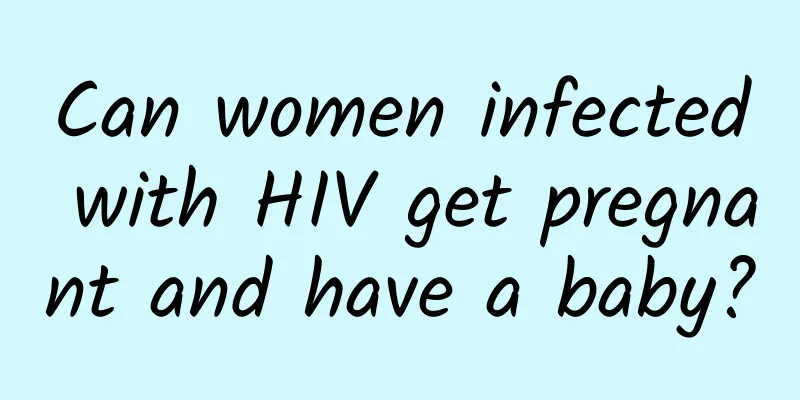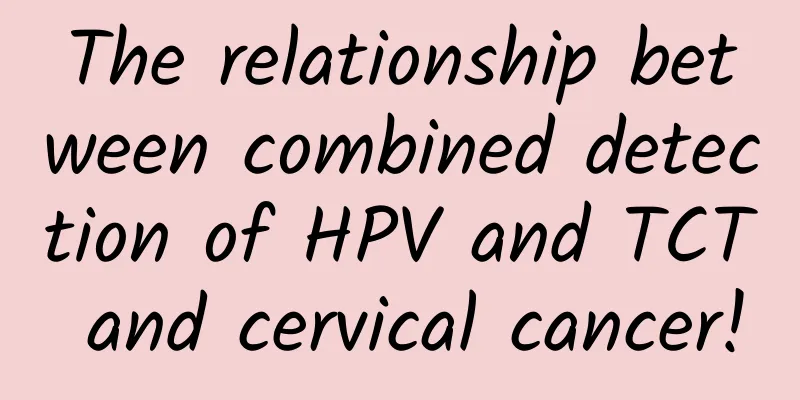Can women infected with HIV get pregnant and have a baby?

|
All about HIV! HIV infection is a slow virus that infects human immune system cells. It is a type of retrovirus. The virus destroys the body's immunity, causing the immune system to lose resistance, which allows various diseases and cancers to exist in the human body, and eventually leads to AIDS (acquired immunodeficiency syndrome). There is no effective treatment so far. The picture comes from the Internet HIV transmission route 1. Sexual transmission: including unprotected sexual intercourse between the same sex or the opposite sex. 2. Blood transmission: including blood and blood products, as well as the use of contaminated syringes, acupuncture needles, surgical instruments, beauty, shared razors, shaving knives, etc. are all considered blood transmission. 3. Mother-to-child transmission: HIV-infected pregnant women can transmit the virus to the fetus or infant through blood, vaginal secretions and breast milk during pregnancy, delivery and breastfeeding. Without intervention measures, the probability of mother-to-child transmission of HIV is 15%-45%. Among children infected with HIV, more than 90% are infected because of their mothers' infection. The picture comes from the Internet Can I get pregnant and have a baby if I am infected with HIV? Since mother-to-child transmission is one of the ways AIDS spreads, can women infected with HIV get pregnant and have babies? The answer is yes! As long as women infected with HIV receive standardized antiviral treatment and prevent mother-to-child transmission as soon as possible, they can give birth to healthy babies. 1. What to do before pregnancy Before planning a pregnancy, both men and women should receive free pre-pregnancy eugenics examinations provided by the government. If a woman is confirmed to be infected with HIV, she should go to the local HIV designated treatment hospital before planning a pregnancy, explain her intention to get pregnant to the doctor, and follow the doctor's instructions to undergo standardized antiviral treatment to reduce the viral load to the lower limit of detection and maintain it for more than half a year, which greatly reduces the risk of mother-to-child transmission. In addition, a comprehensive physical assessment of both parties is required to check for genetic diseases, anemia, and whether liver and kidney function is normal, to ensure a good state of preparation for pregnancy, and to use the correct method of conception under the guidance of a doctor. 2. What should I do after getting pregnant? Pregnant women infected with HIV should go to designated hospitals for standardized pregnancy management. At this stage, doctors will develop individualized medication plans that are more suitable for pregnancy and have fewer side effects based on specific circumstances. HIV-infected people should take antiviral drugs regularly under the guidance of doctors, strengthen CD4 and viral load testing, and keep viral loads below the detection limit. Studies have shown that mother-to-child transmission of HIV can be reduced to less than 1% through mother-to-child transmission intervention throughout pregnancy. At the same time, medical institutions will also provide services such as safe sex guidance, infection symptoms and signs testing, nutritional support, psychological support, and sexual partner notification and testing. The picture comes from the Internet 1. Can pregnant women infected with HIV give birth naturally? It is recommended to give birth in a hospital designated for mother-to-child transmission prevention. HIV infection is not an indication for cesarean section. HIV-positive pregnant women with well-controlled viral load can give birth vaginally like normal pregnant women. However, during delivery, the delivery process should be shortened as much as possible, and the time and opportunity for the newborn to come into contact with the mother's blood, body fluids, vaginal secretions and amniotic fluid should be minimized. Injurious operations such as episiotomy, artificial rupture of membranes, and forceps delivery should be avoided as much as possible, so as to further reduce the risk of newborns being infected with HIV. 2. Newborn feeding Since HIV can be present in the breast milk of HIV-infected mothers, feeding can cause vertical transmission of HIV. Therefore, breastfeeding is not recommended for HIV-infected mothers. Artificial feeding is recommended, and mixed feeding of breast milk and milk substitutes is prohibited. If there are no conditions for artificial feeding or the mother insists on breastfeeding, the mother needs to continue antiviral treatment throughout the lactation period to reduce the risk of infection for the baby. Breastfeeding should not exceed 6 months. The picture comes from the Internet 1. Antiviral prevention for newborns All babies born to HIV-infected mothers should start taking antiviral drugs this morning within 6 hours of birth to prevent HIV infection. Babies with normal exposure risk should take zidovudine (AZT) or nevirapine (NVP) for 4 weeks, while those with high exposure risk should start taking triple antiviral drugs as soon as possible within 6 hours of birth until 6 weeks after birth. 2. Monitoring and follow-up of infants Maternal and child health care institutions include babies born to HIV-infected mothers in the management of high-risk babies, and conduct follow-up and physical examinations when the babies are 1, 3, 6, 9, 12, and 18 months old. Blood samples are collected within 24 hours after birth, 42 days, and 3 months for early diagnosis of HIV infection, and antibody tests are conducted in December. Parents should cooperate with medical staff to receive follow-up and testing services. Daily life tips In addition, it is important to note that HIV-infected mothers need to avoid contact between their blood or body fluids and their babies in daily life. For example, when a mother is doing housework or her skin is accidentally injured for other reasons, she should try to avoid contact between her blood or even wound exudate and her baby. Combining multiple prevention methods can effectively block the transmission of HIV between mother and child. |
>>: Canalys: Global smartphone shipments to reach 1.22 billion units in 2024, up 7% year-on-year
Recommend
Belly bulge at 5 weeks of pregnancy
Will my belly get bigger at 5 weeks pregnant? We ...
Causes of brown vaginal discharge
We all know that leucorrhea is a substance secret...
What should I do if I have spots on my face after giving birth?
Pregnant women will experience many changes in th...
Will emergency contraceptive pills delay your period?
Contraceptive pills are the emergency medicine fo...
The efficacy and function of Job's tears are powerful and are essential for dehumidification.
Job's tears is a very nutritious food with a ...
How to grow taller quickly for a 13-year-old girl
What should a 13-year-old girl eat to grow taller...
What to do if there is no ovulation period? These methods solve
The so-called non-ovulation period actually refer...
What is the reason for light and dark menstrual flow?
Many girls experience a small amount of dark mens...
Left lower abdominal pain in early pregnancy
Pregnant women will face a variety of uncomfortab...
What are the maintenance methods for uterine fibroids
The female body structure is very complex, and so...
To rescue patients with cerebral infarction, you should pay attention to these first aid measures
Cerebral infarction, also known as "stroke&q...
Which anti-inflammatory drug is effective for pelvic effusion?
Pelvic effusion is a common gynecological disease...
What is gynecological disease?
Due to the special structure of female reproducti...
Pharmacist's Antidote | About the "Iodine" in the Body
May 15 National Iodine Deficiency Disorders Day T...









